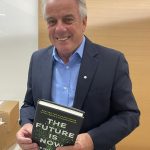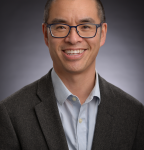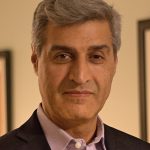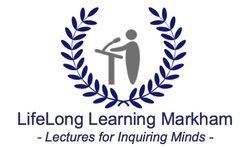Feb 26 – Bob McDonald – “The Future is Now; Solving the Climate Crisis with Today’s Technologies”
 Bob McDonald has been bringing science to the public for more than 50 years. In addition to hosting Quirks & Quarks, the award-winning science program that is heard by 800,000 people each week, McDonald is also science correspondent for CBC TV’s The National and host of the children’s series Head’s Up. He was also host of the CBC Children’s series Wonderstruck. He has written and hosted numerous television documentaries and more than 100 educational videos in Canada and the United States.
Bob McDonald has been bringing science to the public for more than 50 years. In addition to hosting Quirks & Quarks, the award-winning science program that is heard by 800,000 people each week, McDonald is also science correspondent for CBC TV’s The National and host of the children’s series Head’s Up. He was also host of the CBC Children’s series Wonderstruck. He has written and hosted numerous television documentaries and more than 100 educational videos in Canada and the United States.
As a writer, he has authored six bestselling science books, and contributed to numerous textbooks, magazines, and newspapers (including The Globe and Mail). His latest book is The Future is Now: Solving the climate crisis with current technology. McDonald has been honoured for his outstanding contribution to the promotion of science within Canada. He has been awarded the Michael Smith Award from the Natural Sciences and Engineering Research Council, the “Sir Sanford Fleming Medal” from the Royal Canadian Institute, and the “McNeil Medal” from The Royal Society of Canada. He also won a 2008 Gemini Award for “Best Host in a Pre-School, Children’s or Youth Program or Series.”
He is an Officer of the Order of Canada and a recipient of the Queen’s Jubilee Medal. In 2015, asteroid 332324 was officially named Bobmcdonald in his honour. He holds thirteen honorary doctorates from Canadian universities.
The Future is Now; Solving the Climate Crisis with Today’s Technologies
March 4 – Dr. James Tung – “Medical Applications of AI; Promises and Pitfalls

With degrees in Biomedical Engineering (Guelph, McGill) and Rehabilitation Science (Toronto), James Tung is a Canadian engineer and Associate Professor with the Department of Mechanical and Mechatronics Engineering at the University of Waterloo. His primary research is focused on developing advanced assistive technologies to prevent injuries, improve assessment/diagnostic capabilities, and optimizing treatment for individuals with chronic conditions. With expertise in neuromotor control, biomedical signal processing, and mechatronic devices, Dr. Tung develops and clinically tests novel healthcare technologies. Previous projects include developing techniques to assess fracture risk in individuals with osteoporosis, manage pressure ulcer risk in spinal cord injury, and rehabilitation following traumatic brain injury. Dr. Tung is developing methods and devices to capture early symptoms of disease or assess the risk of a disruptive event (e.g., falls, wandering) using wearable sensing, improve adaptability and functioning of prosthetics, and assistive robotics to extend safe mobility for individuals with mobility disabilities (e.g., robotic walkers, exoskeletons).
Medical Applications of AI; Promises and Pitfalls
AI is a technology that is undoubtedly transforming our society, including healthcare. In this session, Dr. Tung will discuss the breadth of AI’s impact on healthcare to date and future applications on the horizon. Medical imaging has perhaps felt the impact of AI most significantly so far with the ability of AI systems to analyze CT, MRI, ultrasound and x-ray imaging. However, many facets of our complex healthcare system will be impacted. The benefits of AI can be seen with examples such as development of novel drugs, making recommendations for therapeutics and treatment plans, optimizing patient flow in hospitals, and biometric monitoring with wearables that will change the way people are treated and assessed.
This session will highlight how AI is impacting health care and the future evolution of medical applications of AI. Insights into Dr. Tung’s research in assistive mobility and rehabilitation will also be discussed in the context of future use.
March 11 – Stein Monteiro – “The Challenges of Integrating Immigrants into our Society”
 Dr. Stein Monteiro‘s research focuses on issues of assimilation and integration among new immigrant groups. His research aims to identify causal relationships between host or sending country socio-structural characteristics on the potential migrant’s decision to migrate and assimilate into the host country environment.
Dr. Stein Monteiro‘s research focuses on issues of assimilation and integration among new immigrant groups. His research aims to identify causal relationships between host or sending country socio-structural characteristics on the potential migrant’s decision to migrate and assimilate into the host country environment.
Stein completed his PhD program at York University in July 2018. As a part of his dissertation, Stein explored themes related to family dynamics and its influence on migration decisions on individuals within an extended family context, in addition to the role of co-ethnic networks in affecting assimilation rates among new immigrant groups in Canada.
Stein spent some years working in higher education administration; first with the Ministry of Advanced Education and Skills Training, and then recently with Humber College. His professional experience has provided him with modern data science skills to analyze large administrative and survey data sets. Stein also recently provided research support for a project at the International Growth Center (London School of Economics) to identify the impact of road building in rural areas of Ethiopia on village-level crop yields and income.
Working with linked administrative and survey data at Statistics Canada’s Research Data Centre, he aims to identify how the properties of typical social networks (i.e. network structure, interconnectedness, size and density) play a role in the process of integration among new immigrant groups.
The Challenges of Integrating Immigrants into our Society
March 18 – Dr. Amir Khajepour – “The Evolution of Motorized Vehicles”
 Amir Khajepour is a professor of Mechanical and Mechatronics Engineering and the
Amir Khajepour is a professor of Mechanical and Mechatronics Engineering and the
Director of the Mechatronic Vehicle Systems (MVS) Lab at the University of Waterloo. He held the Tier 1 Canada Research Chair in Mechatronic Vehicle Systems from 2008 to 2022 and the Senior NSERC/General Motors Industrial Research Chair in Holistic Vehicle Control from 2017 to 2022. His work has resulted in the training of over 150 PhD and MASc students, 30 patents, 600 publications, numerous technology transfers, and the establishment of several start-up companies. He is a recipient of the Engineering Medal from Professional Engineering Ontario and is a fellow of the Engineering Institute of Canada, the American Society of Mechanical Engineering, and the Canadian Society of Mechanical Engineering.
The Evolution of Motorized Vehicles: From Gas-Driven to Electric-Driven and Human-controlled to Machine controlled Autonomous Driving
In this talk, we will delve into the remarkable evolution of vehicles, tracing their journey from traditional gas-driven engines to the revolutionary era of electric-driven propulsion. Furthermore, we will explore how vehicles are transitioning from being human-controlled to becoming machine-controlled with the advent of autonomous technology. By examining the historical significance of gas-driven vehicles, we will review their impact on transportation and the environmental challenges they posed. We will uncover the motivations behind the shift towards electric-driven vehicles, exploring the benefits they offer in terms of
sustainability, reduced emissions, and enhanced energy efficiency. Additionally, we will discuss the latest developments in autonomous driving and the pivotal role of advanced technologies such as artificial intelligence and machine learning in enabling vehicles to operate autonomously. We will delve into the advantages and challenges associated with autonomous vehicles, including enhanced safety, improved traffic management, and the ethical considerations surrounding their deployment.
March 25 – Rachael Finnery – Music to Enhance Cognitive and Physical Health
 Rachael Finnerty RP, MTA, MMT, MA, PhD(C)
Rachael Finnerty RP, MTA, MMT, MA, PhD(C)
Registered Psychotherapist, Music Therapist Accredited, Music Therapy Academy Founder, PhD Candidate
Rachael has been recognized as a music therapist since 2001. She served as the president of the Music Therapy Association of Ontario from 2010-2014 and was the recipient of the YWCA Woman of Distinction Award, for Healthcare in 2015. Rachael brought 2 music therapy courses to McMaster University in 2010 and currently educates over 3000 students each academic year about music therapy. To provide further education to the community and healthcare professionals Rachael founded the Music Therapy Academy.
Rachael started her graduate studies in Psychology, Neuroscience and Behaviour in September 2019. Her research focus is the use of music therapy for proactive wellness.
Dr. Danielle Martin MD, CCFP, FCFP, MPP
 Dr. Danielle Martin is Professor and Chair of the Department of Family and Community Medicine (DFCM), University of Toronto. DFCM is the largest academic department of family medicine in the world and home to the World Health Organization (WHO) Collaborating Centre on Family Medicine and Primary Care. Dr. Martin is an active family physician and a respected leader in Canadian medicine. In 2006, her first year in practice, she helped launch Canadian Doctors for Medicare, the voice for Canadian physicians who believe in “a high quality, equitable, sustainable health system built on the best available evidence as the highest expression of Canadians caring for one another”. Danielle’s policy, clinical and academic expertise, combined with her commitment to health equity, have made her a highly regarded health system leader. She holds a Masters of Public Policy from the School of Public Policy and Governance at the University of Toronto and teaches health policy and health system leadership to trainees from undergraduate to PhD level. In 2018 she led a team to produce the paper ‘Canada’s universal health-care system: achieving its potential’, a core paper for a special issue of The Lancet on Canada’s health systems. In March 2014, Dr. Martin’s presentation to a United States Senate Subcommittee about the Canadian health care system brought her international acclaim and has been viewed by over 30 million people across the globe. Her national bestselling book ‘Better Now: 6 Big Ideas to Improve the Health of all Canadians’, was released in 2017 and is used by students and lay people across Canada who want to learn more about Canada’s health system. Dr. Martin spent eight years as a senior hospital executive, most recently as Executive Vice President and Lead Medical Executive at Women’s College Hospital (WCH), where she was also medical lead of the hospital’s COVID-19 pandemic response. At WCH, she also led the establishment of Women’s Virtual, Canada’s first virtual hospital. The recipient of many awards and accolades, in 2019 Dr. Martin became the youngest physician ever to receive the F.N.G. Starr Award, the highest honour available to Canadian Medical Association members.
Dr. Danielle Martin is Professor and Chair of the Department of Family and Community Medicine (DFCM), University of Toronto. DFCM is the largest academic department of family medicine in the world and home to the World Health Organization (WHO) Collaborating Centre on Family Medicine and Primary Care. Dr. Martin is an active family physician and a respected leader in Canadian medicine. In 2006, her first year in practice, she helped launch Canadian Doctors for Medicare, the voice for Canadian physicians who believe in “a high quality, equitable, sustainable health system built on the best available evidence as the highest expression of Canadians caring for one another”. Danielle’s policy, clinical and academic expertise, combined with her commitment to health equity, have made her a highly regarded health system leader. She holds a Masters of Public Policy from the School of Public Policy and Governance at the University of Toronto and teaches health policy and health system leadership to trainees from undergraduate to PhD level. In 2018 she led a team to produce the paper ‘Canada’s universal health-care system: achieving its potential’, a core paper for a special issue of The Lancet on Canada’s health systems. In March 2014, Dr. Martin’s presentation to a United States Senate Subcommittee about the Canadian health care system brought her international acclaim and has been viewed by over 30 million people across the globe. Her national bestselling book ‘Better Now: 6 Big Ideas to Improve the Health of all Canadians’, was released in 2017 and is used by students and lay people across Canada who want to learn more about Canada’s health system. Dr. Martin spent eight years as a senior hospital executive, most recently as Executive Vice President and Lead Medical Executive at Women’s College Hospital (WCH), where she was also medical lead of the hospital’s COVID-19 pandemic response. At WCH, she also led the establishment of Women’s Virtual, Canada’s first virtual hospital. The recipient of many awards and accolades, in 2019 Dr. Martin became the youngest physician ever to receive the F.N.G. Starr Award, the highest honour available to Canadian Medical Association members.
Primary Healthcare; Investing in Healthy Communities
